How I got a literary agent
firstwriter.com – Saturday March 26, 2005
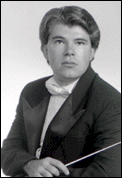
Jeffrey Bishop recently placed his book with the Running Water Literary Agency, which he found using firstwriter.com's database of literary agencies. We asked him about his writing, and how he found success.
fw: Jeffrey – thank you for taking the time to talk to us, and congratulations on securing a literary agent! Tell us about the book you managed to place with them.
JB: Bartemus Ammblin in the Old Forest is set on the Great Plains of North America 10,000 years ago. Within a highly evolved critter society, a young rabbit named Bartemus Ammblin is trying to survive seventh grade in the Burrowton School. His best friends, a badger and a wolverine, support him while he's constantly battling the school bully, a nasty bullfrog. Bartemus is beginning to show promise as a mystic and healer and is taking after his grandfather, the local know-it-all. Bartemus's powers are forced into play when a band of wolves attack his hometown and take the citizens hostage. With the help of his friends, a crazy old pheasant, and some eccentric characters along the way, Bartemus must save the prairie from the wrath of a tyrant.
fw: Is it your first book? How long did it take to write, and where do you get your inspiration from?
JB: This is my first work of fiction. I've had articles published in nonfiction books and trade magazines (I'm a composer and orchestra conductor) prior to this, however. Bartemustook approximately six months to write. I did a lot of research prior to the actual writing process, though. I did several trips through the region to gather information on wildlife and plants. There are recipes and original music in the books as well, so that took extra time too. My inspiration came from the fact that I felt that too much of young adult literature panders to the average kid. I grew up the typical nerd and was a voracious reader. I see the literature today as being a far cry from the C.S. Lewis, J.R.R. Tolkien, and Susan Cooper books of past generations. I don't pretend to be such a writer, but that's my goal – to inspire a sense of awe and wonder while prodding a young person's intellect and morality.
The actual inspiration for the characters, timing, and place came from my intimate relationship to the prairie. I've lived on or near it my entire life. It just seemed a natural extension of my own life story.
fw: Did you mention the fact that you'd previously had nonfiction articles published? Did it help?
JB: I've had articles published in Teaching Music Through Performance, in Orchestra Volumes 1 & 2, the Instrumentalist magazine, and the trade journal Orchestra News. I did mention this in my approach along with the fact that I've had over three-dozen pieces of music for orchestra and band published. I think it's very important to have at least a foot in the publishing door; even some nonfiction articles can help!
fw: What made you decide to try and get a literary agent?
JB: I was lucky enough to have a friend of a friend who works as a field representative for a large publishing group. He was kind enough to get the manuscript into the hands of some high power editors in New York and London. One of the editors was a big help and offered several suggestions. I spent a year working on the sequel and rewriting the last five chapters of the first book. That's when I started looking for an agent. As a full time teacher, composer, and conductor I travel across the country doing clinics and have a full schedule of commissions for new pieces of music. I needed someone who could work the literary side of my life while I controlled the musical side.
fw: Once you'd decided that you needed a literary agent, how did you go about getting one?
JB: I did what every aspiring writer does – bought the books, subscribed to the magazines, and read every article on the web that I could find. I wrote the query letters and sent them out and began a large collection of rejection slips. I had a hit on one agency that wanted a huge reading fee and that's when I realised how much money unscrupulous agents could make in this business! It was a shocking revelation and one that I won't ever forget. Once I exhausted most of the standard methods, I found firstwriter.com and decided to give it a try.
fw: Even J.K. Rowling got rejection slips! But how long did it take to get a positive response?
JB: I think I received over two-dozen rejections. That includes the ones from inside the industry that my friends helped me with. It took about a year after I got serious about finding an agent before I landed one. From the horror stories I've read about, I think I had a pretty easy go of it considering how bad it could have been.
fw: And how did firstwriter.com help you to achieve this?
JB: I used the search engine to narrow the categories down to children's fantasy within America. That gave me a huge amount, much too cumbersome to sort through at once, so I began plodding through them a little at a time. I came to rely on the daily email updates almost exclusively after a month or so. I would save the ones that fit my needs, print them off, and send out queries. That's how I found my agent. It was from one of the InstantAlert emails.
fw: So would you say that you found the InstantAlert feature the most useful aspect of your subscription to firstwriter.com?
JB: I loved the InstantAlert emails. They became my daily "to do list." I would sort through them, delete the ones that weren't pertinent, and then sit down and work on query letters. It made the process of finding possible agents so much easier. And in my case, I found an agency that was just getting started, so that really was to my advantage. I've got an agent who believes in my work and believes that she can sell my work. Together we're going to get my work published by the best possible company. That's such an empowering feeling in this otherwise eviscerating line of work!
fw: How did you approach the agents you identified from the InstantAlerts?
JB: I had a standard query letter that I sent out to several agents (usually 5 to 7) at a time. I would wait for the replies before sending out another set. I used the Writer's Markets guidebooks at first, but then came to rely solely on firstwriter.com, as the agents were already narrowed down for me. I also changed my query letter after several rejection slips. I was frustrated that after having nearly three-dozen pieces of music published that literature could be so difficult! I had no idea! A little bit of arrogance and attitude in that first paragraph of the revamped letter made an
impression. I got three positive replies from agents, two of which passed on the manuscript, but the last one offered a contract.
fw: What are your plans now, and how's your agent helping you?
JB: I'll keep on writing. And my agent will work on selling what I write. She's busy with the query letters, bios, and other materials for the publishers. She's been in contact often with regular updates. I am very happy with the relationship. As for the book, there are sequels in the works. I have designed the story arc like the plot of a grand opera: three acts with three scenes in each for a grand total of nine books. At 300+ pages on average per book, I will be writing for several years and loving every minute of it.
If you want to see how Bartemus and company are doing, check him out at www.jeffreysbishop.com.
fw: Thanks, Jeffrey – and best of luck with this and the rest of the books!




 The first three steps to finding a literary agent
The first three steps to finding a literary agent How I got a literary agent - An interview with author James R. Larson
How I got a literary agent - An interview with author James R. Larson How I got a literary agent - An interview with author Adrienne Schwartz
How I got a literary agent - An interview with author Adrienne Schwartz How I got a literary agent - An interview with author, Charles Heaton Allen
How I got a literary agent - An interview with author, Charles Heaton Allen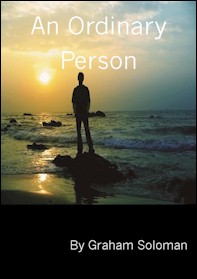 How I got a literary agent - An interview with author, Graham Soloman
How I got a literary agent - An interview with author, Graham Soloman How I got a literary agent - An interview with author, Eric Houghton
How I got a literary agent - An interview with author, Eric Houghton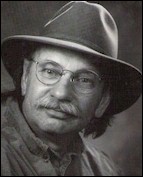 How I got a literary agent - An interview with author David C. Burton
How I got a literary agent - An interview with author David C. Burton How I got a literary agent - An interview with Mary Kilgore
How I got a literary agent - An interview with Mary Kilgore How I got a literary agent - An interview with author, Robert W. Morgan
How I got a literary agent - An interview with author, Robert W. Morgan How I got a literary agent - An interview with author Rob Riley
How I got a literary agent - An interview with author Rob Riley How I got a literary agent - An interview with author Geri Spieler
How I got a literary agent - An interview with author Geri Spieler How I got a literary agent - An interview with author Frank Hotchkiss
How I got a literary agent - An interview with author Frank Hotchkiss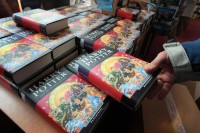 So you want to be a novelist? A New York literary agent, editor and author reveal how bestsellers are born
So you want to be a novelist? A New York literary agent, editor and author reveal how bestsellers are born How These Writers Got a Literary Agent
How These Writers Got a Literary Agent Dollars, Cents, and Being Left With the Bill: Jillian Medoff on Breaking Up With Her Literary Agent
Dollars, Cents, and Being Left With the Bill: Jillian Medoff on Breaking Up With Her Literary Agent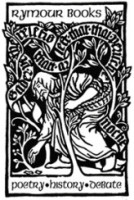 New Publisher Listing: Rymour Books
New Publisher Listing: Rymour Books New Literary Agent Listing: Danielle Marshall
New Literary Agent Listing: Danielle Marshall New Literary Agent Listing: James Gill
New Literary Agent Listing: James Gill Straight white author's career finally takes off after he tells woke publishers he's gender queer Nigerian
Straight white author's career finally takes off after he tells woke publishers he's gender queer Nigerian New Publisher Listing: Crowdbound
New Publisher Listing: Crowdbound New Literary Agent Listing: Lauren Liebow
New Literary Agent Listing: Lauren Liebow The Novelry Offers $100,000 Prize to Break Publishing Barriers
The Novelry Offers $100,000 Prize to Break Publishing Barriers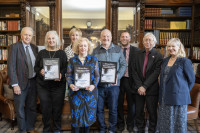 The Sunday Post short story writing competition is back for 2025
The Sunday Post short story writing competition is back for 2025 Bestsellers LLC Unveils Data-Driven Publishing Model to Transform Authors into Industry Dominators
Bestsellers LLC Unveils Data-Driven Publishing Model to Transform Authors into Industry Dominators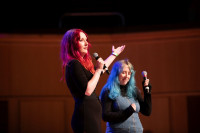 404 Ink publishing house to close
404 Ink publishing house to close Agents Help YA Authors Find Crossover Success
Agents Help YA Authors Find Crossover Success Submission Grinder Delists Analog
Submission Grinder Delists Analog New Magazine Listing: Blackbox Manifold
New Magazine Listing: Blackbox Manifold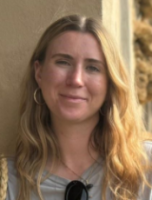 New Literary Agent Listing: Ciara McEllin
New Literary Agent Listing: Ciara McEllin New Publisher Listing: Red Planet Books
New Publisher Listing: Red Planet Books
